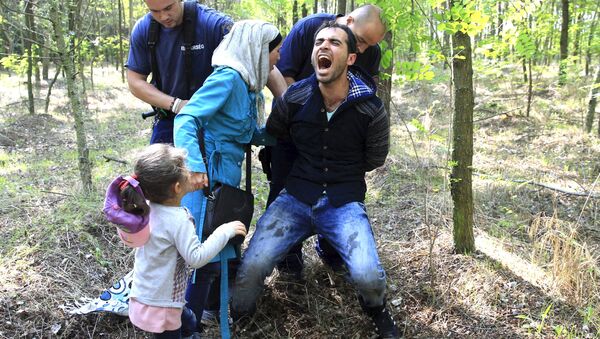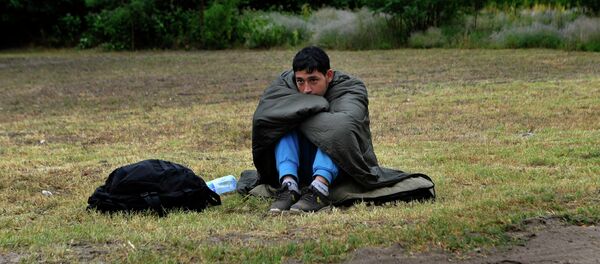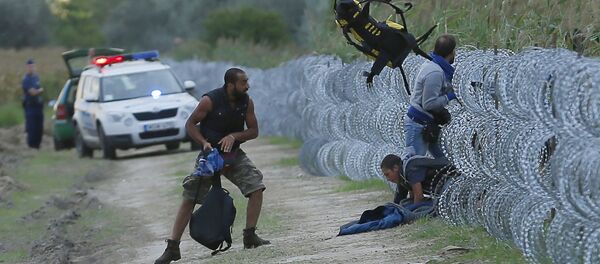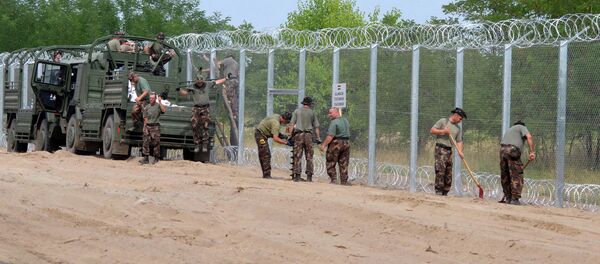Although migrant strikes cooled down at Baross square near the station, police continue to surround the railway station where volunteers estimate 2,500 people have set up camp underground.
Media Presence
German, Swedish and Hungarian journalists are interviewing the migrants at Keleti while small children are playing football, drawing, running around and riding up and down the escalator by the station.
Waiting for Something to Happen
People seem calm and tired, resting on blankets and drying their clothes on handrails. A group of up to 30 migrants are seen seemingly consulting on further actions.
They are waiting for something to happen while authorities prevent them from boarding trains en route to Germany and other more affluent EU member states.
Basic Necessities
A special Transit Zone, providing migrants with access to basic public health and sanitary facilities, is operating in Keleti.
The Budapest-based Migration Aid volunteer civil initiative is seen helping migrants with information, translations, medical help and food.
Thousands of mostly Middle Eastern and North African nationals use Hungary as a gateway to wealthier EU members. Authorities estimated that over 156,000 migrants had illegally entered the country since the start of 2015, while a number of registered immigrants has nearly tripled.
Budapest police claim that the travel restrictions imposed on migrants follow the Schengen Borders Code that does not allow undocumented migrants crossing EU borders. The restrictions are also seen as a way of implementing the Dublin Regulation, an EU law that stores fingerprints and asylum claims intended to prevent multiple applications.





